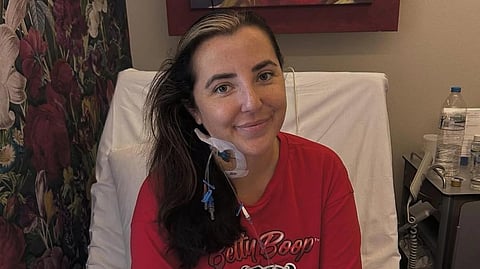When endometriosis spreads beyond the pelvic region, it is referred to as extrapelvic endometriosis. One form, thoracic endometriosis syndrome (TES), can affect the lungs, diaphragm, or chest cavity, causing symptoms like chest pain, shoulder pain, coughing up blood, or shortness of breath, often cyclical with the menstrual cycle.
Cases involving the heart or pericardium are extremely rare. A 2021 study published in the Journal of Thoracic Disease noted fewer than 20 confirmed cases of cardiac endometriosis worldwide, underscoring the rarity and complexity of Lisa Walsh’s condition.
When the disease affects the diaphragm, it can lead to pain radiating to the chest and shoulders, difficulty breathing, and sometimes mimic cardiac issues.


